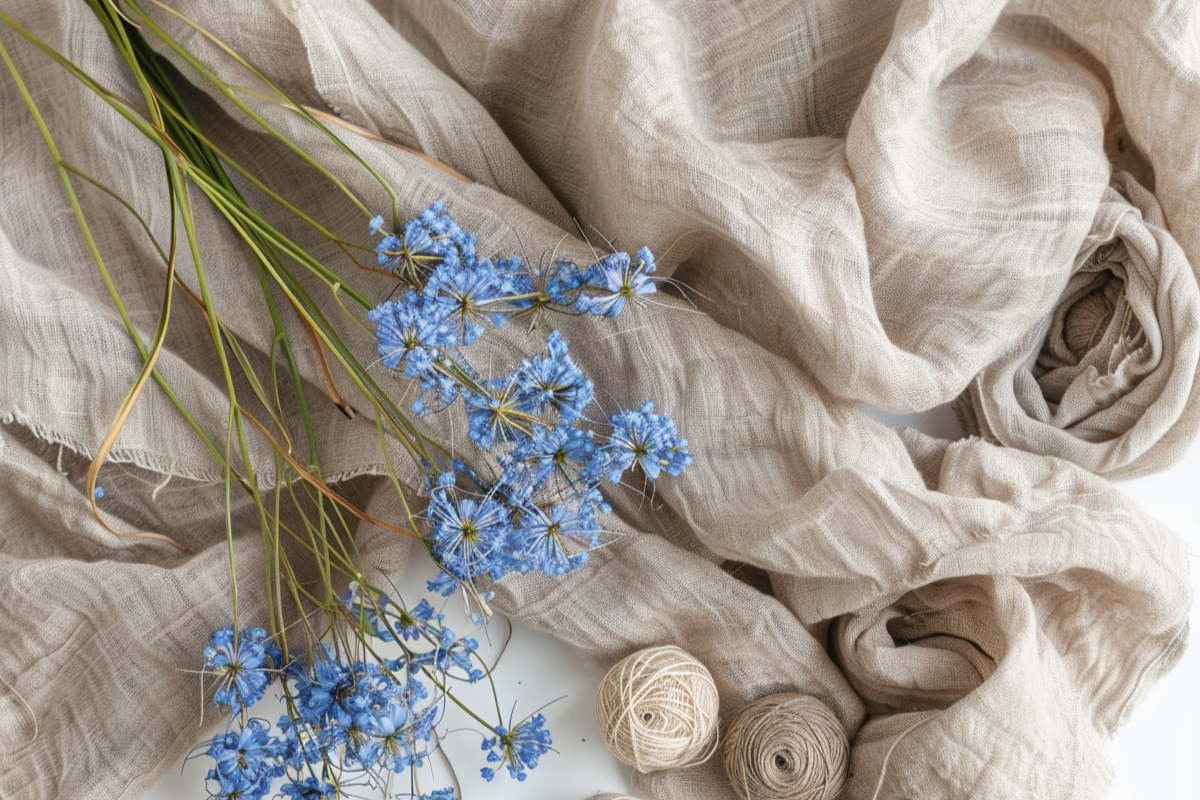
4 Reasons Why Linen Is Sustainable and Eco-friendly
February 13, 2023 3 min read
Nowadays choosing a fabric for clothes can be a daunting task simply because of the vast variety of natural and synthetic, knitted and woven materials. Cotton. Chiffon. Linen. Satin. Silk. Denim. Undoubtedly, we could easily find at least one example of each fabric in our wardrobe.
However, not all of them are sustainable and eco-friendly. Not all of them are durable and natural. Some involve chemicals, require special farm machinery or are created entirely artificially. This, of course, not only increases energy consumption and your carbon footprint but also leaves an irreversible damage to the environment. But… that is not the case with linen. Linen is special and unique: as fabric and as a material for clothing. That is why this time we take a closer look at the tight bond between linen and nature.
Linen is all about the environment
Well, first of all, linen is eco-friendly and can truly be regarded as being a sustainable choice. Those who are concerned about the environment should know that linen production does not cause damage to our planet because it comes entirely from flax plants. They have been grown, cultivated, and then harvested, perfecting flax fibers into the fabric for centuries without using any chemicals, only manual labor. Even the most modern technologies have made little difference to how flax is cultivated and how linen is produced. This speaks volumes about an extremely high quality of linen fabric.
1. NO NEED FOR CONSTANT WATERING
Another significant advantage of linen fabric compared to other materials is that it does not require a lot of water. Flax plants can flourish using only natural rain or dew water while cotton plants must be watered additionally, sometimes even leading some regions to droughts. Needless to add that all the machines and technical equipment used for watering emit CO2, therefore flax growing definitely is more eco-friendly.
2. CO2 ABSORPTION
Linen also lowers our carbon footprint, as flax plants absorb CO2 from the atmosphere. This means that the more flax is grown, the cleaner our planet can become, not even mentioning the benefits of linen clothes. Besides, flax is said to flourish best in cool and humid climate, so Europe is a perfect place for both: flax cultivation and linen production.
3. NO CHEMICALS
When flax plants are harvested and prepared for linen production without fertilizers or pesticides, no chemicals or intensive dyes are used. The whole process does not cause pollution neither to water nor to soil, which means that linen fabric comes entirely from nature and does not require any superficial enhancement.
4. ZERO-WASTE FOR ENTIRE FLAX PLANT
Choosing linen means voting for sustainability because linen production is based on a zero-waste principle. The whole flax plant can be and is used, extracting oil, flaxseed products and, of course, delicate fibers for linen fabric leaving no waste to the planet. Such natural origin means that linen is biodegradable and easy to recycle, coming from and back to nature smoothly and with no trace.
menique definitely knows that linen is precious. So are the clothes, created by our devoted designers and tailors, who treasure every piece of material, measuring and perfecting it until even the most meticulous clients are satisfied.
So, the bond between linen and nature is truly fascinating, promising sustainability and durable quality. Organic, natural, and featuring many noteworthy qualities this fabric tends to top the lists as being one of the best choices for clothing material. Best for you and for mother Nature.


thoughtful gifting
Comfort and warmth all wrapped up in eco-friendly and beautifully made gift boxes.











